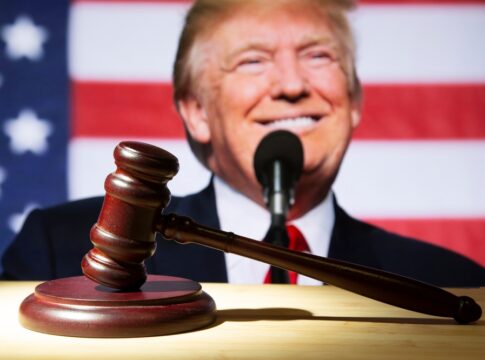There is nothing like an ungrateful immigrant who becomes a congresswoman and disrespects the president. Rep. Ilhan Omar’s criticism of fellow Democrats for attending Trump’s inauguration has sparked debate about political consistency. She questions the attendance of high-profile figures like Biden, Harris, and Obama. Omar claims that attending conflicts with previous criticisms of Trump.
Omar’s Critique of Democratic Attendance
Representative Ilhan Omar has sparked controversy by criticizing fellow Democrats who attended Donald Trump’s 2017 inauguration. The outspoken congresswoman argues that their presence at the event contradicted previous statements labeling Trump as a threat to democracy. Omar’s comments have reignited discussions about political consistency and the symbolism of bipartisan traditions.
Omar specifically questioned the attendance of prominent figures such as President Joe Biden, Vice President Kamala Harris, and former President Barack Obama. She expressed dismay at what she perceived as an undue show of respect to a figure many Democrats had vehemently opposed during the election campaign.
Rep. @Ilhan Omar on Biden, Dems Who Attended Inauguration: ‘No One Should Show’ Trump Dignity and Respect
Reminder: She's an anti-Semite who married her brother to skirt immigration laws. pic.twitter.com/bsbbLzAbQw
— Rusty (@Rusty_Weiss) January 24, 2025
Challenging Traditional Norms
The congresswoman’s statements challenge longstanding political norms surrounding the peaceful transfer of power. While acknowledging Biden’s attendance as a patriotic gesture, Omar argued that the widespread Democratic presence at the inauguration sent a conflicting message about the party’s stance on Trump’s presidency.
“So just the level of indignity that was shown and disrespect to tradition, to me, said no one should show him dignity and respect.” Rep. Ilhan Omar
Omar’s critique extends beyond the 2017 inauguration, pointing out that Trump himself did not attend Biden’s inauguration in 2021. She uses this to underscore what she sees as a lack of reciprocity in maintaining democratic traditions.
NEW: OUTRAGED @IlhanMN Omar Slams Democrats Who Attended Trump’s Inauguration: “Why Normalize Someone Destroying Our Democracy?”
"This person we told you is going to destroy our democracy is currently dismantling everything we hold dear, and you want to sit there, pat him on the… pic.twitter.com/6g6gkhojoz
— Simon Ateba (@simonateba) January 24, 2025
Trump’s Recent Inauguration and Executive Actions
While Omar’s comments have stirred debate about past events, Trump’s recent return to the White House has been marked by significant executive actions. Following his inauguration, Trump signed several executive orders, including pardons for individuals convicted in connection with the January 6 Capitol riot. These moves have already begun to reshape the political landscape.
“You have to remember, Trump himself did not attend Biden’s inauguration, even though he was the outgoing president that was supposed to, you know, help with that transition. They didn’t have the decency to invite the Bidens to the White House.” Rep. Ilhan Omar
Trump’s inauguration also saw the announcement of new tariffs on Canada and Mexico, set to take effect on February 1. Additionally, the former Proud Boys leader is being processed for release, highlighting the far-reaching implications of Trump’s executive actions.
Historical Context and Future Implications
Trump’s return to office marks several historical firsts. He is the first president in over a century to win non-consecutive terms and the first convicted felon to serve as president. These unprecedented circumstances add weight to Omar’s critique of Democratic attendance at his previous inauguration.
As the political landscape continues to evolve, Omar’s comments raise important questions about the balance between maintaining democratic traditions and standing firm against perceived threats to those very traditions. The debate sparked by her criticism may influence how political figures approach similar events in the future, potentially reshaping the symbolism of presidential inaugurations for years to come.


